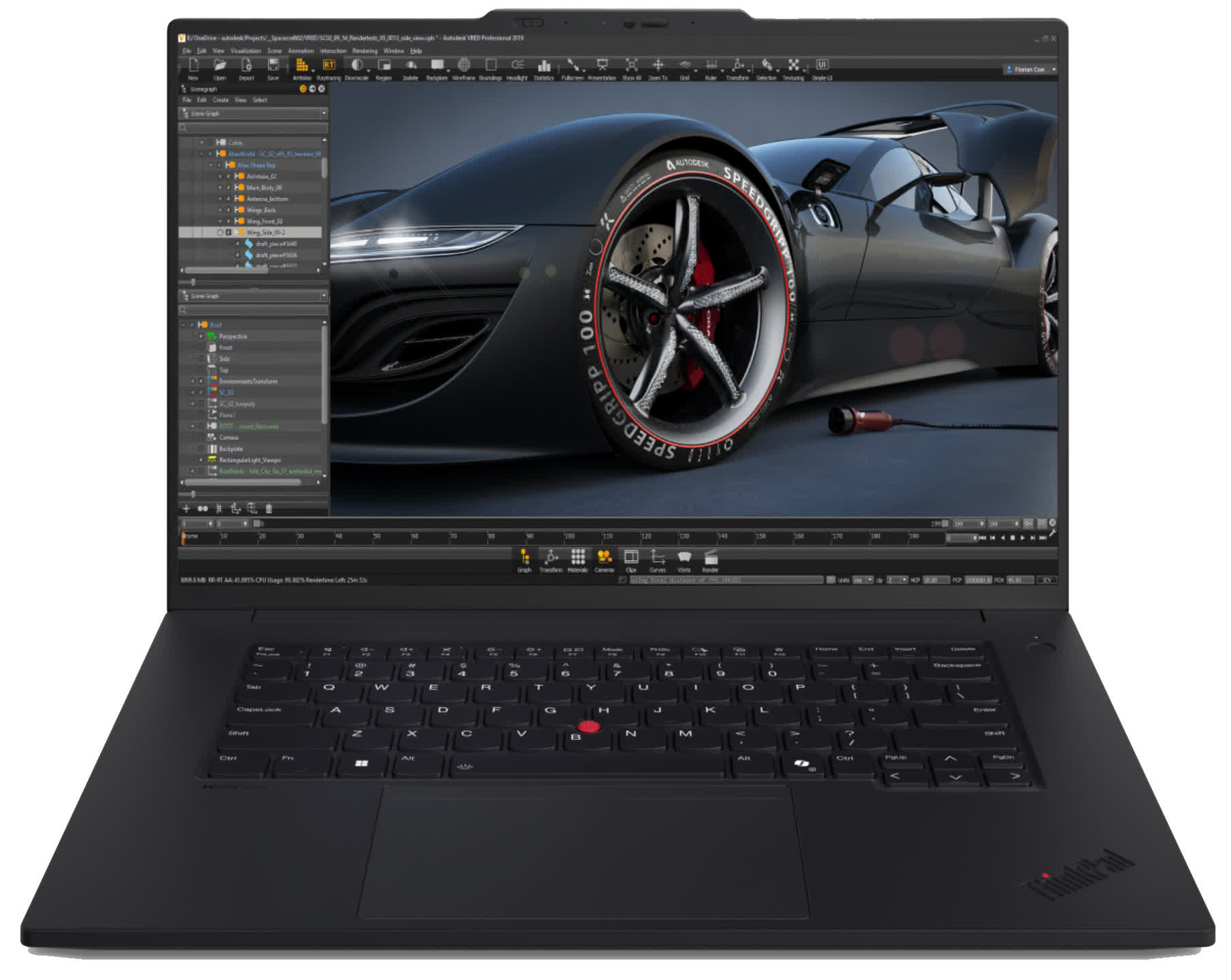Forward-looking: Lenovo is on track to become the first PC maker to ship a laptop running LPCAMM2, the new memory standard set to replace SODIMM. CAMM, short for Compression Attached Memory Module, was created by Tom Schnell and introduced by Dell in its Precision 7670 workstation laptop in 2022. Rather than hang on to the proprietary tech, Dell agreed to let JEDEC – the trade organization and standardization body that oversees memory standards in the computer industry – use it as the basis for a new memory standard.
JEDEC finalized and published the CAMM2 standard in December 2023, paving the way for Micron to announce its first LPCAMM2 modules at CES the following month. Now, Lenovo is poised to become the first to ship a laptop running the newfangled memory.
The upcoming AI-ready ThinkPad P1 Gen 7 can be configured with up to 64 GB of LPDDR5x LPCAMM2 memory. According to Lenovo, its LPCAMM2 solution consumes up to 61 percent less active power and affords a space-saving advantage of 64 percent compared to traditional DDR5 SODIMM.

Elsewhere, the ThinkPad P1 Gen 7 features up to a 16-inch OLED touch screen with a 16:10 aspect ratio, and can be combined with up to an Intel Core Ultra 9 185H CPU, and as much as 8 TB of PCIe M.2 2280 SSD space. Graphics options include integrated Intel Arc on the low end or an Nvidia GeForce RTX 4070 for serious gamers.
Other noteworthy amenities include up to Wi-Fi 7, Bluetooth 5.3, and a plethora of connectivity ports (two Thunderbolt 4, one USB-C (10Gbps), one USB-A (5Gbps), an SD Express 7.0 card reader, an HDMI 2.1 port, and a standard audio jack). The laptop also comes with a Kensington Nano lock slot, a webcam privacy shutter, and a biometric-enabled power button.
Lenovo made no mention of battery life, but did say the 90Whr unit inside the laptop is customer replaceable.
The Lenovo ThinkPad P1 Gen 7 launches in May 2024 and is expected to start at $2,619. We'll keep our eyes peeled for the first batch of reviews to see how the new memory compares to traditional SODIMM.
